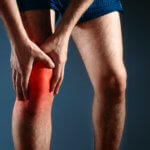
A brain aneurysm is as serious as it sounds. It’s basically a swollen area, caused by a bulging or ballooning blood vessel within the brain. Since it’s on the inside, the symptoms are usually all we have to go upon before a proper diagnosis.
An aneurysm usually resembles a berry dangling from its stem. It can leak fluids and even burst, causing a hemorrhagic stroke from bleeding right inside the brain. Luckily, though, most brain aneurysms aren’t likely to burst.
They may not even cause any health issues or side effects but are detected during check-ups for other problems.
However, it’s only logical that we take certain steps to prevent a brain aneurysm before it occurs. This would obviously prevent an aneurysm rupture as well. The exact causes of brain aneurysms are not really known, but here are some of the factors that increase such a risk:
1. The Aging and Gender Factor
It’s widely agreed among medical health experts that one major factor leading to brain aneurysms is that of age. This makes quite a bit of sense since our whole body is growing weaker as we age. It only stands to reason that the weaker the blood vessels are, the more likely they would be to develop aneurysms.
The resulting enlargement would also be more likely to rupture. Hence, older individuals should go for regular screenings in order to rule out brain aneurysms and their threatened ruptures.
Statistics have also been supportive of the idea that aneurysms develop as we age. Brain aneurysms are much more likely to be found in adults than in kids. They’re also more likely to happen in females rather than males. Of course, the risk of such aneurysms developing with age can be diminished by eschewing certain bad habits.


